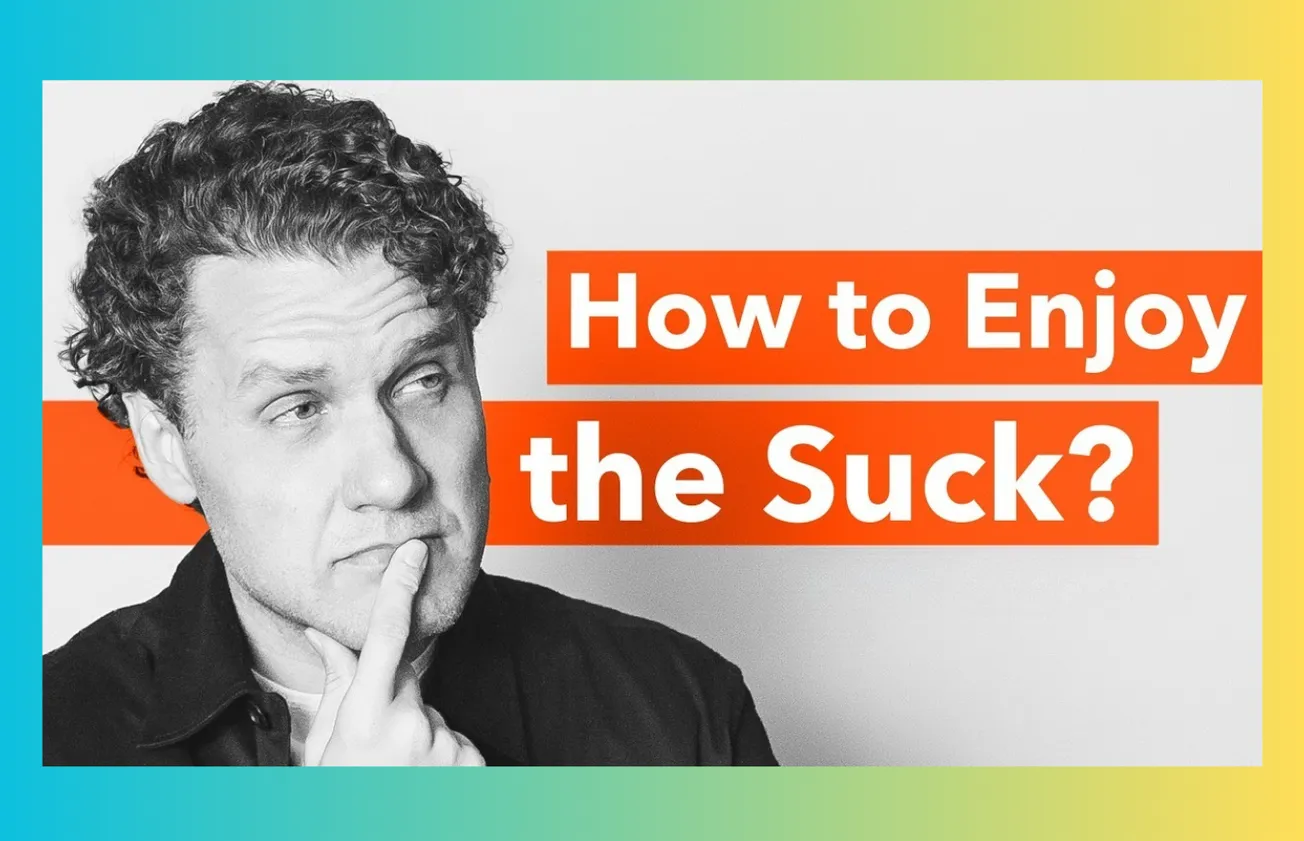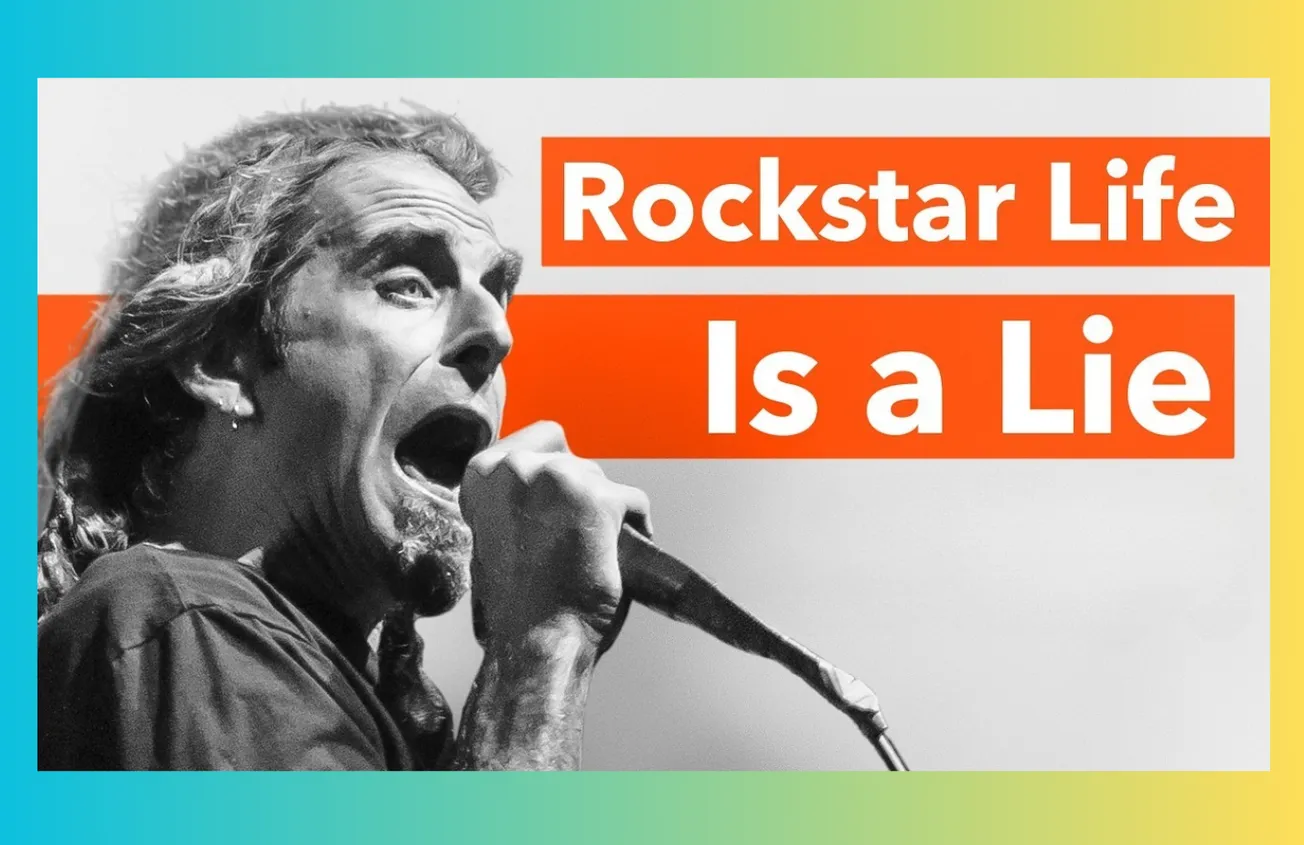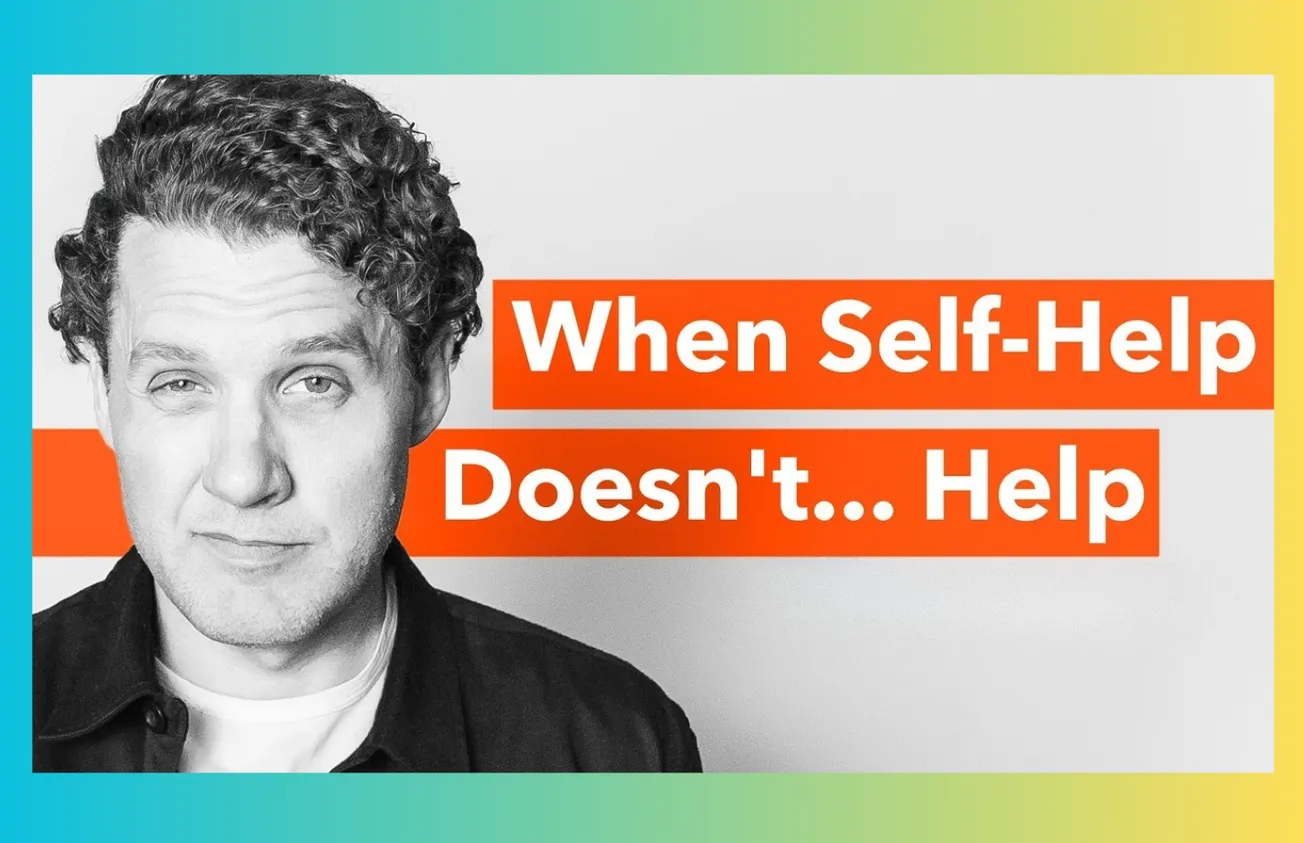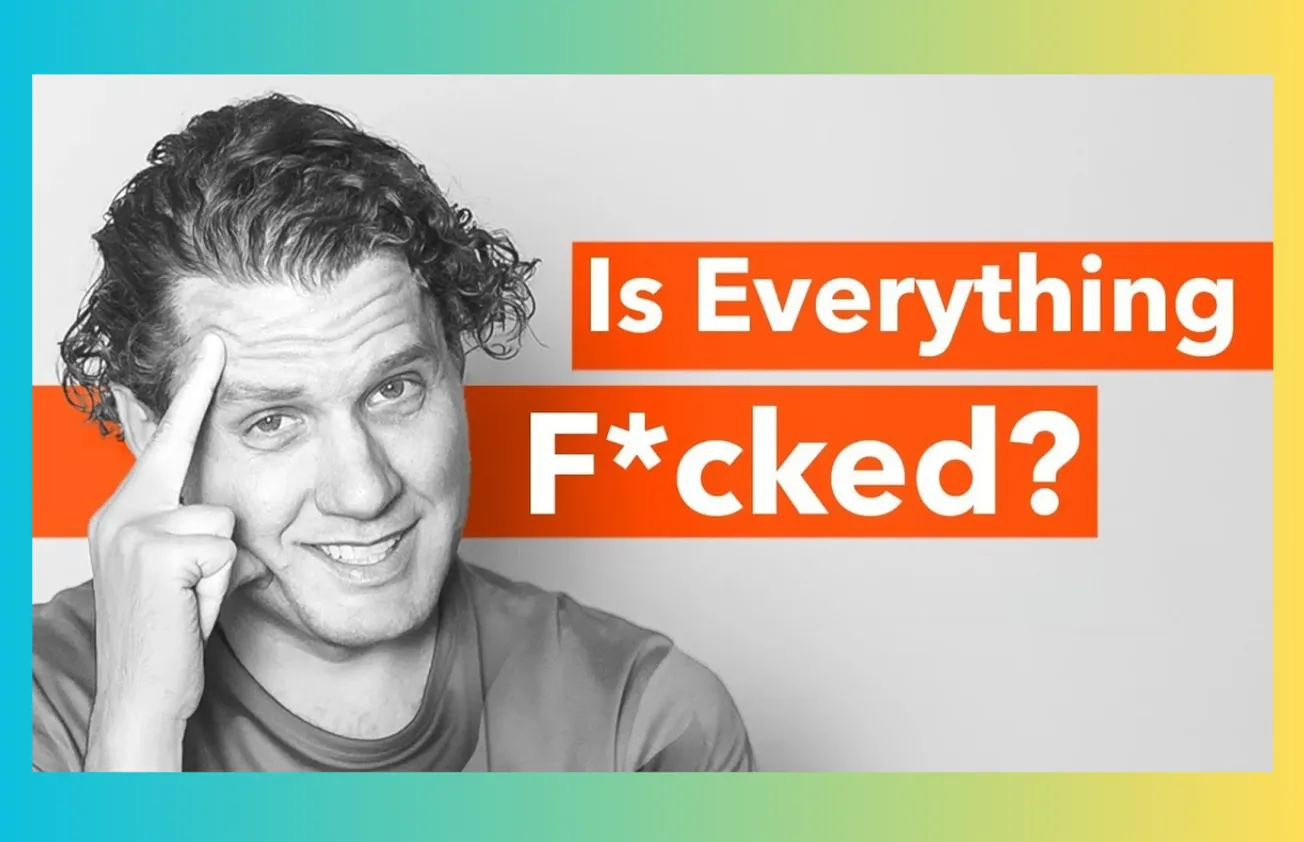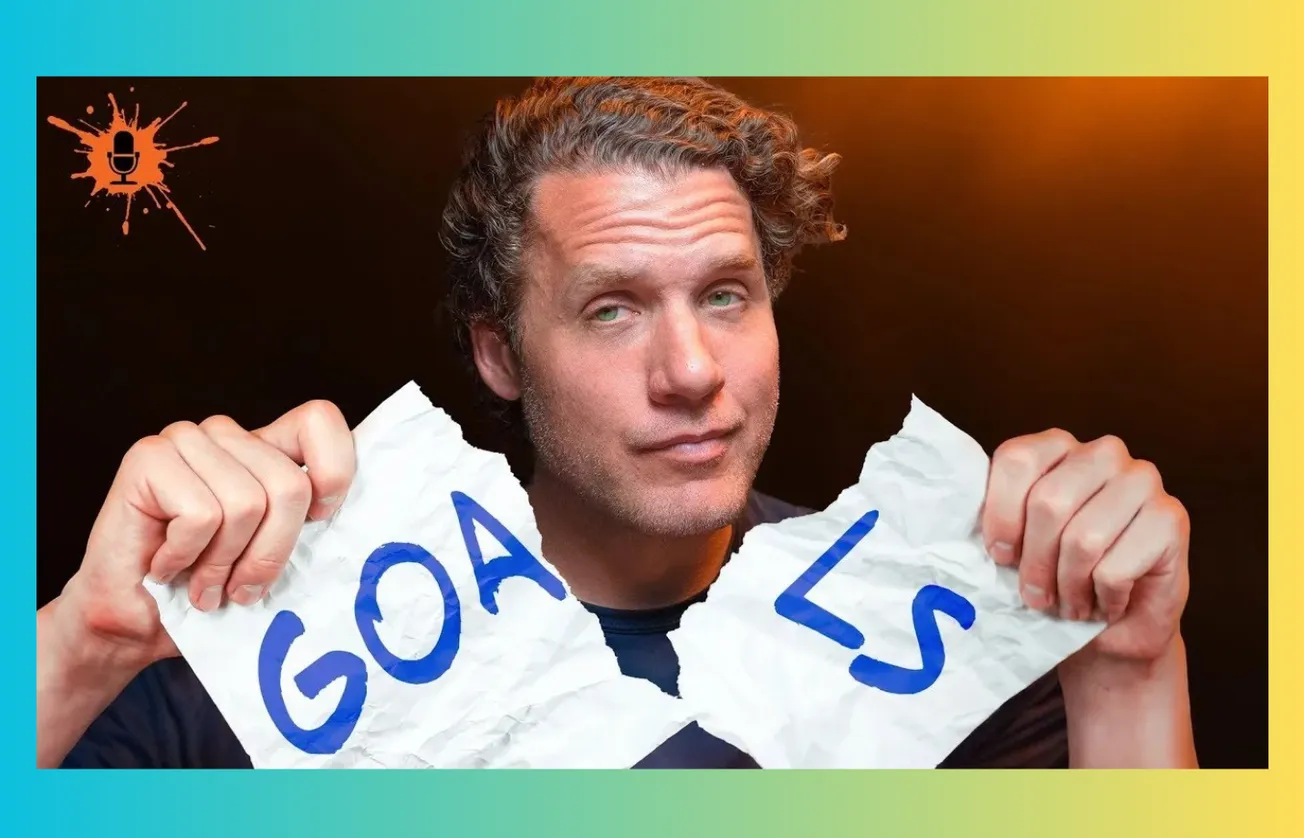Table of Contents
During a sold-out Australian speaking tour, Mark Manson took dozens of live questions on purpose, trauma, love, procrastination, identity, and parenting. This is what he learned—and what we can all take away from it.
Key Takeaways
- Purpose isn’t found—it’s made through sacrifice, repetition, and meaningful discomfort.
- Procrastination is driven by emotional overload, self-doubt, perfectionism, and fear—not laziness.
- Healthy conflict isn’t just tolerated—it’s necessary for long-term intimacy and trust.
- Criticism only matters if you’d also ask that person for advice.
- We stay stuck not because of lack of logic—but because our identity is entangled in the very thing holding us back.
- Boundaries are how we teach people to love us properly—and preserve our own sanity.
- Teenagers need emotional freedom and failures, not prematurely imposed clarity.
- As AI automates logic, compassion and presence will become irreplaceable assets.
- Life often gets lighter when you have the courage to quit what no longer fits.
- Vulnerability without grounding creates chaos—not connection. Strength isn’t silence, but stability.
Live in the Room: Real Questions, Raw Honesty, Deep Humanity
- From packed theaters in Brisbane to late-night stages in Melbourne, Mark witnessed vulnerability meet insight in real-time.
- The audience ranged from 20-something software engineers to 60-year-old foster parents, and the common thread was the same: “What the hell do I do now?”
- Questions weren't polished. They were deeply human. “How do I know if I’m sabotaging myself?” “How do I leave a relationship that isn’t bad, just empty?”
- Australians, Mark noted, had a refreshing mix of emotional honesty and pragmatic irreverence. “You care a lot—but you don’t posture.”
- The mood wasn’t a self-help seminar. It was a communal workshop on being human in an age of noise.
Procrastination Is Emotional Overload—Not a Discipline Deficit
- Procrastination isn’t a time problem. It’s a feelings problem.
- People wait not because they don’t want to act, but because the action feels too emotionally expensive.
- Fear of failure, fear of disappointing someone, fear of not being good enough—these aren’t lazy. They’re paralyzing.
- The antidote is to de-escalate the moment. Instead of “write the report,” it’s “write one awkward sentence.”
- Productivity becomes easeful when effort feels emotionally safe.
Purpose Isn’t Discovered—It’s Sculpted Through Iteration
- Most people hope purpose strikes like lightning. But Mark reminded the crowd: “Meaning isn’t found. It’s built like a wall—one brick at a time.”
- He encouraged attendees to try a lot and stick with little: identify what feels nourishing and keep showing up for it.
- Purpose has less to do with certainty and more to do with momentum. Are you becoming more of who you want to be?
- Meaning rarely comes with fireworks. It whispers. Then it repeats. Then it becomes rhythm.
Addiction, Identity, and the Fear of What Comes After Letting Go
- Whether it’s alcohol, an ex, a job, or a city—people stay not because it’s great, but because the alternative is unknown.
- The real fear is not loss. It’s self-loss. “If I let go of this, who am I?”
- Mark suggested reframing: you’re not erasing identity—you’re updating it.
- Letting go isn’t weakness. It’s the bravest confrontation with your next self.
Stop Taking Criticism from People You Wouldn’t Trust for Direction
- We absorb feedback like it’s truth—but Mark reminded, “Unless you want their life, why are you renting their opinion?”
- Fear of judgment is human. But internalizing it is optional.
- Anchor yourself to values, not approval. And ask: would I ask this person for guidance? If not, let it go.
Trauma Recovery Is Slow, Boring, Beautiful Work
- Healing isn’t linear. It’s a looping journey that requires evidence, not epiphanies.
- “You don’t need to believe the world is good. Just prove it isn’t always bad.”
- Safe friends. Kind gestures. Non-reactive moments. These are the bricks of repair.
- Real healing isn’t loud. It’s cumulative.
Conflict Isn’t the Enemy. Disrespect Is.
- The best marriages, Mark explained, argue a lot—but with grace.
- Conflict isn’t dysfunction. It’s an invitation to deepen.
- The difference between repair and rupture is curiosity. Can you stay curious even when you’re angry?
- “People don’t leave because of fights. They leave because no one made sense of them afterward.”
Parenting Isn’t Philosophy. It’s Modeling Stability and Love
- A foster dad asked, “What’s the one lesson you’d want my kid to learn?”
- Mark’s answer: “Let them watch you cope well with hard things.”
- Kids become resilient by seeing resilience—not hearing about it.
- Teens will struggle with purpose. Your job isn’t to define it for them. It’s to make the failure process survivable.
Imposter Syndrome Isn’t Lying. It’s Just the Gap Between Capacity and Self-Trust
- Feeling like a fraud is normal—especially when you’re growing fast.
- The fix isn’t fake confidence. It’s aligned effort.
- “You don’t overcome imposter syndrome by thinking. You outgrow it by doing.”
- Build the skills, show the work, and eventually the doubt will adjust to your reality.
When Empathy Becomes Self-Betrayal
- Many in the crowd identified as “too nice.” Mark reframed that: “You’re not too nice. You’re boundary-averse.”
- Compassion doesn’t mean you abandon your own needs.
- Being kind to others at your own expense isn’t noble. It’s unsustainable.
- Set limits not to push people away—but to protect your capacity to love them well.
The Rise of AI and the Emotional Economy of the Future
- AI will write, speak, and advise. But it won’t soothe, empathize, or hold space.
- As tasks become automated, presence becomes luxury.
- “Soon, being emotionally available will be more valuable than being hyper-productive.”
- In a world of infinite information, attention becomes sacred.
Grief, Mortality, and the Liberating Power of Finality
- Mark closed many nights with this prompt: “Imagine the plane goes down tomorrow. What are you proud of? What are you ashamed of?”
- The crowd went quiet. Every time.
- Mortality is a permission slip to quit what doesn’t matter, to forgive faster, and to dare bigger.
- “Don’t fear death. Fear wasting time being someone you’re not.”
In every city, the questions changed—but the ache remained the same. People didn’t want hacks. They wanted alignment. Not validation—but courage. Not answers—but better questions. What Mark gave them—what they gave each other—was permission to live with more honesty, depth, and momentum.

